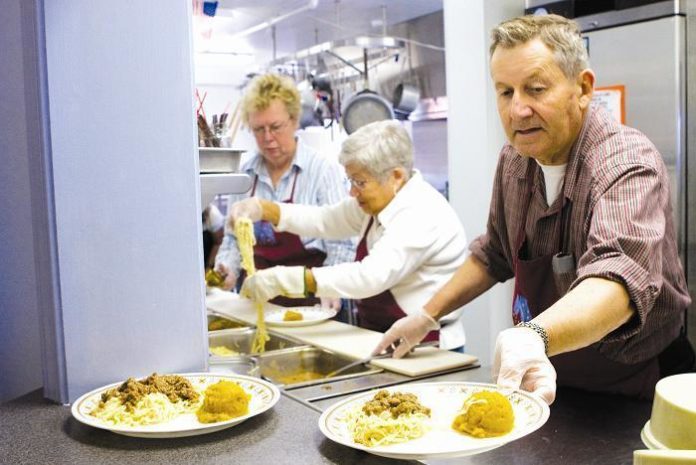
For more than three decades, McAuley Ministries in Providence has fed, clothed and housed the poor, relying on grants and donations to support its work.
The McAuley Village provides transitional and subsidized housing for single mothers with children. The McAuley Wardrobe provides clothes for families. And the McAuley House, which provides meals to the poor and unemployed, provides 65,000 meals each year.
The need for the ministries’ services keeps growing, said Dan Wolfe, executive director. “There is a more demand here than we can support.”
But McAuley Ministries isn’t the only organization in the city doing this kind of work. There are larger nonprofits, such as Crossroads Rhode Island and Amos House, whose missions overlap with the small group’s. And they have better resources for fundraising.
Rhode Island is home to nearly 5,000 nonprofits, all vying for dollars in an environment with ever-fewer large corporate benefactors, limited state support, and only so many individuals and businesses willing to contribute to their causes.
For small nonprofits, it’s a particularly big struggle to stay afloat.
“Once you see your organization needs revenue to survive and to meet costs,” Wolfe said, “you have to find new avenues of revenue. And if we are going to be a self -sustaining, viable organization five to 10 years from now, we need to do a better job at raising funds.”
Eileen Hayes, executive director of Amos House, said the McAuley House does good work, but does not have the same exposure to the community or same resources as Amos House. Yet that could change, she said.
“Board development has a lot to do with it, and especially having [members] who really believe in your mission,” Hayes said. “This is a small enough state where people know people, so it’s not that difficult to get someone to introduce you to the mayor, politicians and companies like [Blue Cross & Blue Shield of Rhode Island].”
Wolfe, who is in his first year as director of McAuley Ministries, has begun to appeal directly to executives and community relations officers with a program called “Lunch on Me,” in which businesses and organizations can, for $2 per person, provide a hot, hearty meal to a homeless person – for one week, two weeks or a month.
Citizens Bank of Rhode Island is the first to participate and will provide the $10,000 needed to cover lunch for the entire month of November.
“A donation today goes right to food tomorrow,” Wolfe said.
For the Samaritans of Rhode Island, a Providence-based group that runs a suicide prevention hot line, one of the biggest challenges in fundraising is that donors want instant gratification, said Denise Panichas, the executive director.
It’s easier to show a hot meal or a specific project completed by volunteers; it’s more difficult to show concrete results for the Samaritans’ work.
“What has happened in this the world is as dollars become [more scarce], people are looking for more accountability,” she said. That, in turn, means charities have to devote more of their own limited resources to fundraising rather than to their actual work.
“All of these people who are trying to help do the good deed are also trying to raise money,” Panichas said. The Samaritans’ budget this year includes $35,000 from the R.I. Department of Education and a $15,000 legislative grant, but that’s not even a third of the $170,000 operating budget.
Michelle Novello, founder and executive director of RiverzEdge Art Project, a youth development program for students in northern Rhode Island, said for her group, “the pursuit of money is a full-time job. And yes, it is the No. 1 challenge that I face as an executive director.”
She added: “I spend 80 percent of my time pursuing funding to keep the organization open, and there are times I want to quit because the more time I spend writing grants, the less time I’m with the kids.”
Citizens President and CEO Joseph J. MarcAurele said it was the recognition of the challenges small nonprofits face that led the bank and NBC 10 to develop the Champions in Action program, which provides grants and in-kind assistance to one nonprofit each quarter.
Both RiverzEdge and McAuley Ministries have been chosen as Champions, receiving $25,000 grants, volunteer services and media and public relations support. •












